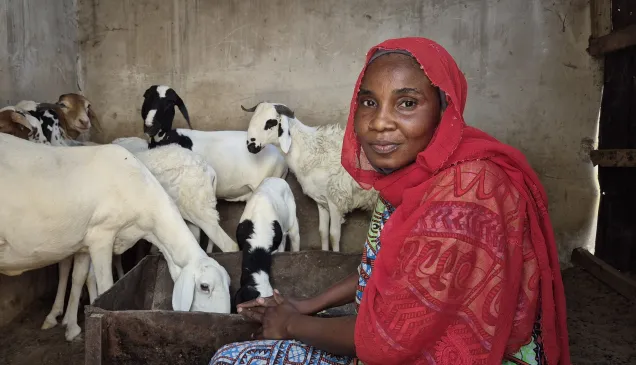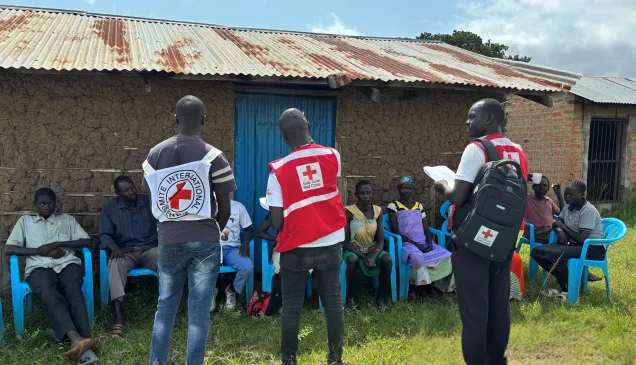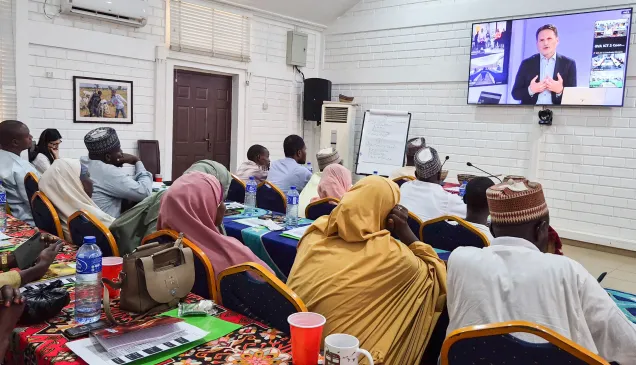Voices from Nigeria: Living with Disability During Conflict
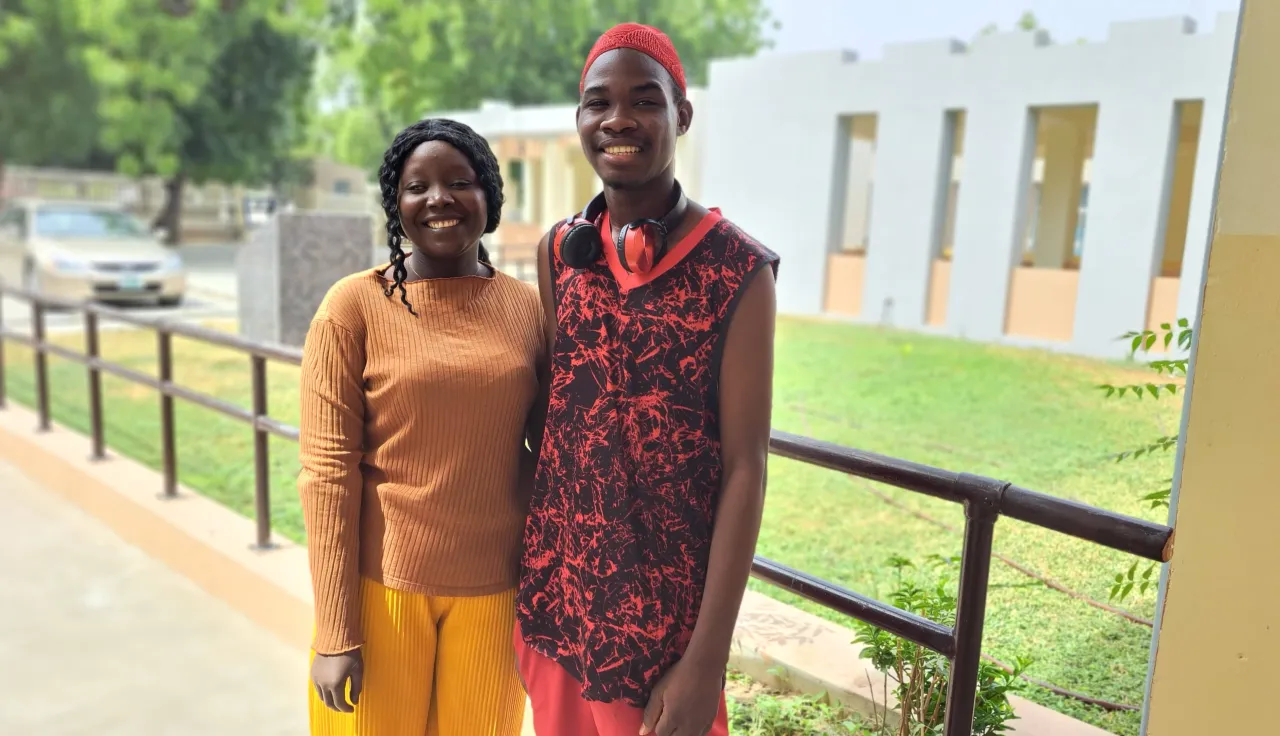
People in northeast Nigeria have lived through conflict for more than a decade. That hasn’t stopped Nigerians who live with disability from confronting the additional challenges they face head on.
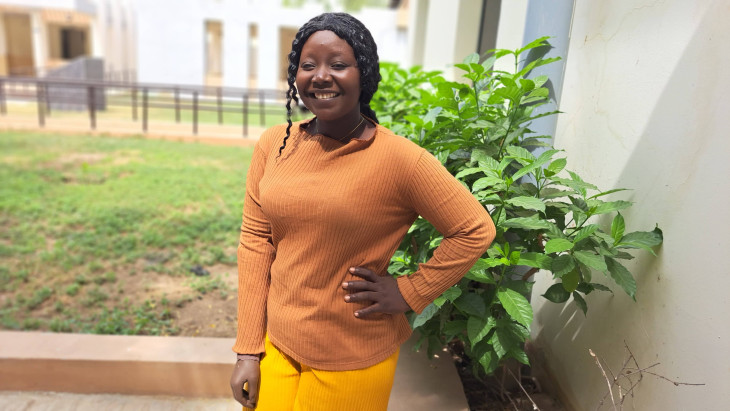
Rita Yuguda at Maiduguri’s Physical Rehabilitation Centre. Credit: Mohammed Ibrahim, ICRC.
Rita Yuguda loves travel, listening to gospel music and watching movies.
In 2019, she sustained life-altering injuries, including gunshot wounds to her back and the loss of a hand, when armed conflict reached her family home in northeast Nigeria. She lost her mother and brother in the attack.
As she tells it, resilience did not come easy. "I had a lot of challenges, but I coped. I accepted the condition and just calmed myself, only focusing on what I wanted to pursue," Rita says.
"Those that have disabilities shouldn't think that they can't make plans".
After the incident, Rita received support and was fitted with a prosthetic hand at the Physical Rehabilitation Centre in Maiduguri.
Rita now works at the Centre as an administration and reception assistant – often being the first point of contact for those who need its assistance, just as she had.
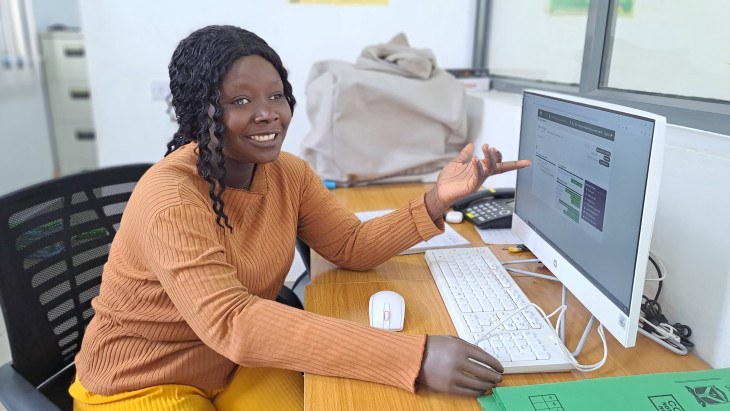
Rita Yuguda works at her desk at Maiduguri's physical Rehabilitation Centre. Credit: Mohammed Ibrahim, ICRC.
Since it was founded by the International Committee of the Red Cross (ICRC) and handed over to Nigerian authorities in November 2020, the Centre has helped more than 1500 people living with disability.
Conflict can cause loss of life or limb – or it can simply make life harder for those already living with disability.
So, the rationale behind the Centre was simple. Even in times of conflict, people living with a disability should never be overlooked.
From our experience working in conflicts around the world, we know that people living with disability can face additional challenges when it comes to accessing opportunities in education, work, and social life.
This is especially true in communities already facing pressures posed by years of armed conflict.
It is why we believe that people living with a disability deserve every chance, and equal opportunity, to participate as contributing members of society.

Murtala Bala at Maiduguri's Physical Rehabilitation Centre. Credit: Mohammed Ibrahim, ICRC.
Murtala Bala is 20 years old and wants to start his own business one day.
Four years ago, he lost both his legs in a bomb blast as a result of the conflict in Nigeria's northeast.
"All I heard was a very loud sound... The vehicle had hit an explosive device, and I lost consciousness," Murtala tells us.
We supported his treatment in a ward for weapon-wounded patients at the State Specialist Hospital of Maiduguri before he received further help at Maiduguri's Physical Rehabilitation Centre.
After many years and a lot of effort, Murtala is able to walk again. "I have received training on how to walk with my new artificial legs and I am not having the initial challenges of pain I had before," he says.
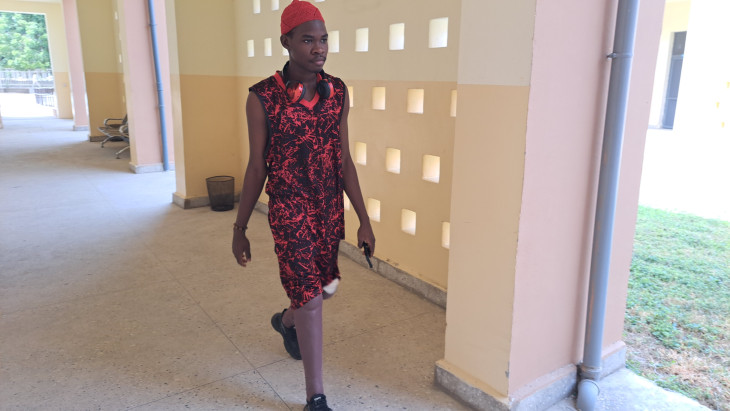
Murtala Bala walks with his new limbs. Credit: Muhammed Ibrahim, ICRC.
Despite the setbacks, Murtala has been able to complete secondary school. Now, he wants to continue his education.
As conflicts around the world trend longer and longer, we're mindful of the need to find sustainable solutions to humanitarian problems. That's why we invest in training those who can also help others.
For Amuda Nuhu, it took years of such training to become an expert in making prosthetic limbs.
We know how important this work can be in places where bullets or bomb blasts can cause life-changing injury. That's why we supported three years of Amuda's studies in Tanzania.
Since returning to Maiduguri and being employed at the Physical Rehabilitation Centre, Amuda can now put what he learned into practice.
"We produce prosthetic and orthotic devices for patients – victims of armed conflict, people born with congenital deformations and patients of amputations due to illnesses," he tells us.
Beyond the prosthetic and orthotic support, as well as physiotherapy, patients at the Centre also have access to mental health and psychosocial care.
In the search for sustainable solutions towards the complex challenges posed by conflict, it is the work and optimism of people like Amuda, Rita and Murtala that can help drive positive change.
Their work makes all the difference.
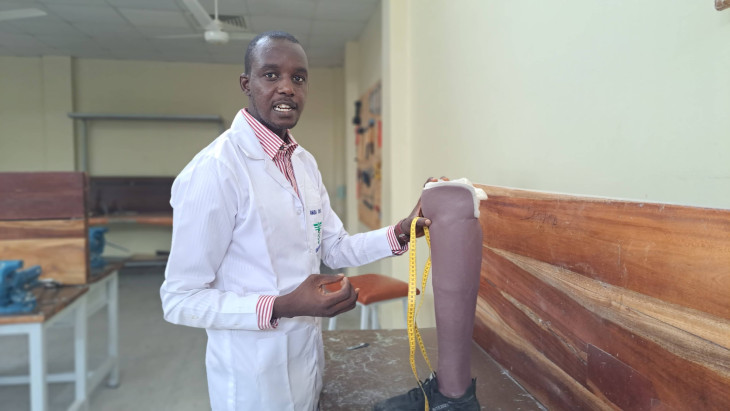
Amuda Nuhu builds a prosthetic limb. Credit: Mohammed Ibrahim, ICRC.

